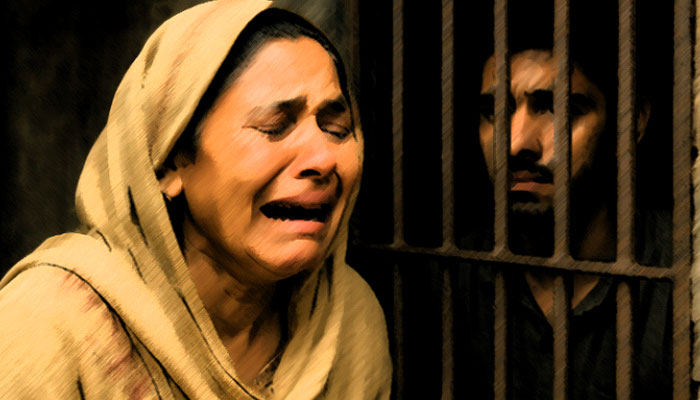In the Remembrance of 19 July 1947: The True Voice of Kashmiris and the Struggle for Self-Determination
On 19 July 1947, the All Jammu and Kashmir Muslim Conference passed a historic resolution in Srinagar. It demanded the accession of Jammu and Kashmir to Pakistan. This day holds great political and emotional importance for Pakistan and the Kashmiri people. It reflects the true voice of Kashmiris who have long struggled for their right to self-determination. The resolution represented the collective will of the Muslim majority population of Kashmir. It was based on strong cultural, religious, and geographical ties with Pakistan. The decision came after widespread discussions and public support. Even today, 19 July remains a symbol of the Kashmiri people’s democratic choice and their ongoing struggle for freedom and justice.
At the time of partition between India and Pakistan the princely states of whole region were given the option to join either India or Pakistan, considering geographical vicinity, religious proximity and the will of their people. However the princely state of Jammu and Kashmir was a Muslim-majority state but ruled by a Hindu Maharaja. The state of Jammu and Kashmir was strategically and demographically aligned with Pakistan. State share`s borders with Pakistan from the west, and the vast majority of its population about 77% was Muslim. It had extremely close economic, cultural, religious, and trade ties with areas and those areas later on became parts of Pakistan. The 19th July resolution of accession was not made in a vacuum it was a legit action. It took weeks of public mobilization and political discussions among Kashmiri leaders, scholars, and citizens. The All Jammu and Kashmir Muslim Conference, that was representing the desire of the majority of the population, came to a conclusion that accession to Pakistan was in the best interest of the state.
Despite this loud and clear resolution and immense public sentiment the Maharaja of Kashmir Hari Singh, chose to delay the decision on accession, hoping to remain in power and independent. However, his delaying decision of accession of Kashmir with Pakistan, resulted communal tensions and internal rebellion which was emerged against his rule in Poonch and other regions. During chaos the Maharaja fled to India. Then, on 26 October 1947, under controversial circumstances and without consulting and caring about the will of people, he signed the so-called “Instrument of Accession” to India.
Pakistan called the accession of Jammu and Kashmir to India both undemocratic and illegitimate. It argued this act violated the principles of the Partition Plan and ignored the will of the Kashmiri people. India’s military intervention in Kashmir triggered the first Indo-Pak war in 1947–48. India took the Kashmir dispute to the United Nations Security Council on 1 January 1948. In response, the UN passed several resolutions, starting with Resolution 39, establishing the United Nations Commission for India and Pakistan (UNCIP). These resolutions called for a ceasefire, troop withdrawal, and a plebiscite. Pakistan fully supported them, but India later backtracked, citing political and security concerns. The dispute remains unresolved.
About more than seven decades, Pakistan has stayed steadfast in its diplomatic, moral, and political support for the Kashmiri people’s right to self-determination. Every year, the 19th July is allocated in Pakistan and Azad Kashmir as “Kashmir’s Accession to Pakistan Day,” to acknowledge this historic resolution and to remind the world of the promises made to the Kashmiri people.
In august 2019 India took a unilateral decision of abrogating the Article 370 and 35. This act of Indian government further intensified the crisis. These constitutional provisions which were used to provide a special autonomous status to Jammu and Kashmir got revoked without the consent of the Kashmiri people. This illegitimate act of Indian government was widely condemned by Pakistani leaders and by many international observers as a violation of international law and United Nations resolutions. Since then, the region has been under heavy equipped military personals, military lockdown, with widespread human rights violations reported by international organizations and media like Haman Rights Watch and Amnesty International. The silencing of dissent, restrictions on movement, custodial killings, and suppression of journalists and civil society activists have made it clear that the Indian government seeks to erase Kashmiri identity permanently rather than address the political dispute
Every state of the world believes that the resolution of the Kashmir dispute lies in honoring the will of the people of Kashmir except India. The 19 July 1947 resolution is a powerful symbol of that will, a peaceful, democratic, and just desire for accession with Pakistan. It also show that the importance of letting the people decide their fate, rather than allowing territorial ambitions or military occupation to dictate their future.
Pakistan will continue to raise the Kashmir issue on international platforms including the United Nations, OIC, and global forums. Pakistan will also keep calling on the global community to hold India accountable for its actions and to facilitate a just and peaceful solution to this long standing conflict.
Ifra Bibi student of International relations at National University Of Modern Languages and currently serving as an intern at the Kashmir Institute of International Relations(KIIR).






Comments are closed, but trackbacks and pingbacks are open.